Can I Increase the Max Number of Zones On My Wireless Security System?
No, you cannot increase the max number of zones on your wireless security system. The number of zones available on an alarm panel is hardcoded into the system's firmware, and you cannot add more zones. If you run out of zones and need to add more sensors, then you must replace the system.

Wireless sensors on a security system are assigned to wireless zones. Each wireless zone supports one (1) function from a wireless sensor. If a single wireless sensor is used for multiple functions, then it may be assigned to multiple zones. An example is the Honeywell 5821, which offers flood detection, as well as both high and low temperature detection. To get full functionality out of that sensor, you must program one zone for flood detection, one zone for low temperature detection, and one zone for high temperature detection. This means that the one single 5821 sensor will use three (3) system zones.
When you think about a wireless system, nearly all of the zones are wireless. You are expected to use compatible wireless sensors with a wireless system. Obviously, wireless sensors on a wireless system enroll to wireless system zones. If you want to use hardwired sensors with a wireless system, then you will usually need to use a compatible wired to wireless converter. And even then, the system will recognize these wired zones as if they were wireless sensors, and they will enroll to wireless zones. With very few exceptions, pretty much all zones on a wireless system are wireless zones.
Some wireless panels may have one or two "wired zones" that are exclusively for use with normally closed (NC) wired contacts. These are rare examples of true hardwired zones on a wireless system. Depending on the panel, configuring these wired zones (if available) may "take away" an equivalent number of standard wireless system zones. But with the exception of those possible one or two "wired zones", the number of wireless zones on a wireless panel also represents the number of total zones on the panel. Keep in mind that this varies based on the panel that is being used, and some wireless panels will provide the one or two wired zones in addition to the wireless ones. In other words, configuring the wired zones won't take away any wireless zones, and you will still have the same number of wireless zones available, regardless of whether or not you set up the on-board wired zones. It depends on the panel.
In the event that you run out of wireless zones on a wireless panel, you will not be able to add new sensors to the system. This limit cannot be increased in any manner. With that in mind, it is crucial that you choose a wireless system with enough zones to meet your needs. It may be a good idea to get a system that can support more zones than you think that you will need, just in case you ever need to expand upon the system later.
The number of wireless zones on a wireless system, which really should also be considered as the maximum number of total system zones, is determined by the panel itself. It is a good idea to look at this specification when you are shopping for a wireless alarm panel, especially if you plan on setting up a large number of zones on your system. On the low-end, most of the the Interlogix Simon Panels, such as the Interlogix Simon XTi-5, only support 40 wireless zones. Another low-end panel is the 2GIG GC2e, which only supports 60 wireless zones. The reality is that even these low-end wireless panels will usually still provide more than enough zones for the typical user. But they are still on the low end in terms of number of zones supported.
More robust wireless panels support a greater number of wireless zones. The 2GIG GC3e, which is the higher-end offering from 2GIG, will support up to 100 wireless zones. The Honeywell Lyric supports up to 128 wireless zones. And the Qolsys IQ Panel 2 Plus matches the Lyric with 128 wireless zones on its own. But what all of these systems have in common is that you cannot increase the maximum number of supported zones. What you get out of the box is what you are stuck with. With that in mind, if you think that you may run out of zones, then choose a system with more zones to prevent that from happening.
One other big thing to consider when choosing a wireless alarm panel is the type of wireless sensors that it will support. A wireless alarm system can only support wireless sensors that operate at a wireless frequency supported by the system's internal wireless receiver. Some systems will only support one (1) wireless frequency, while other systems may be able to support multiple wireless frequencies. This allows for greater flexibility and versatility when setting up the system. For instance, there are different versions of the Qolsys IQ Panel 2 Plus. Each version can support one legacy frequency (319.5 MHz, 345 MHz, or 433 MHz), plus the PowerG Wireless Frequency. Another example is the Honeywell Home PROA7PLUS Alarm Panel, which can support encrypted PROSIX Sensors, plus the choice of one (1) legacy sensor frequency by adding the Honeywell Home PROTAKEOVER Module. Check the specifications for your alarm system to see what types of wireless sensors it can support.
Did you find this answer useful?
We offer alarm monitoring as low as $10 / month
Click Here to Learn MoreRelated Products

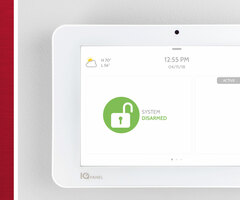
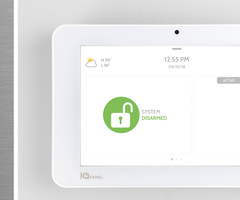
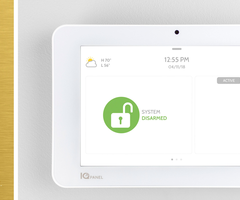

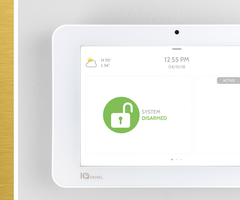
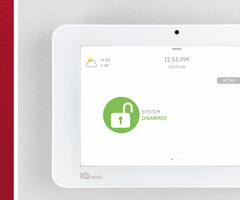
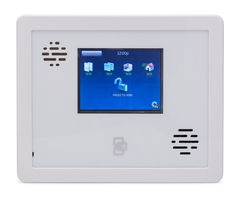
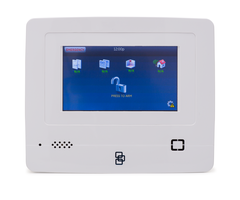
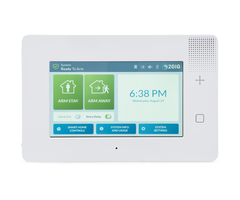
Related Videos
Related Categories
- Answered


